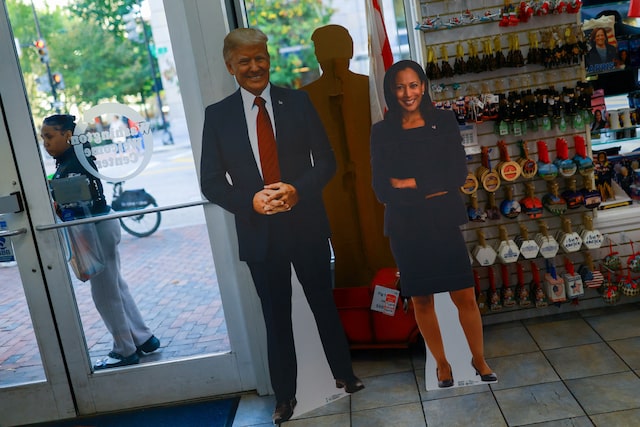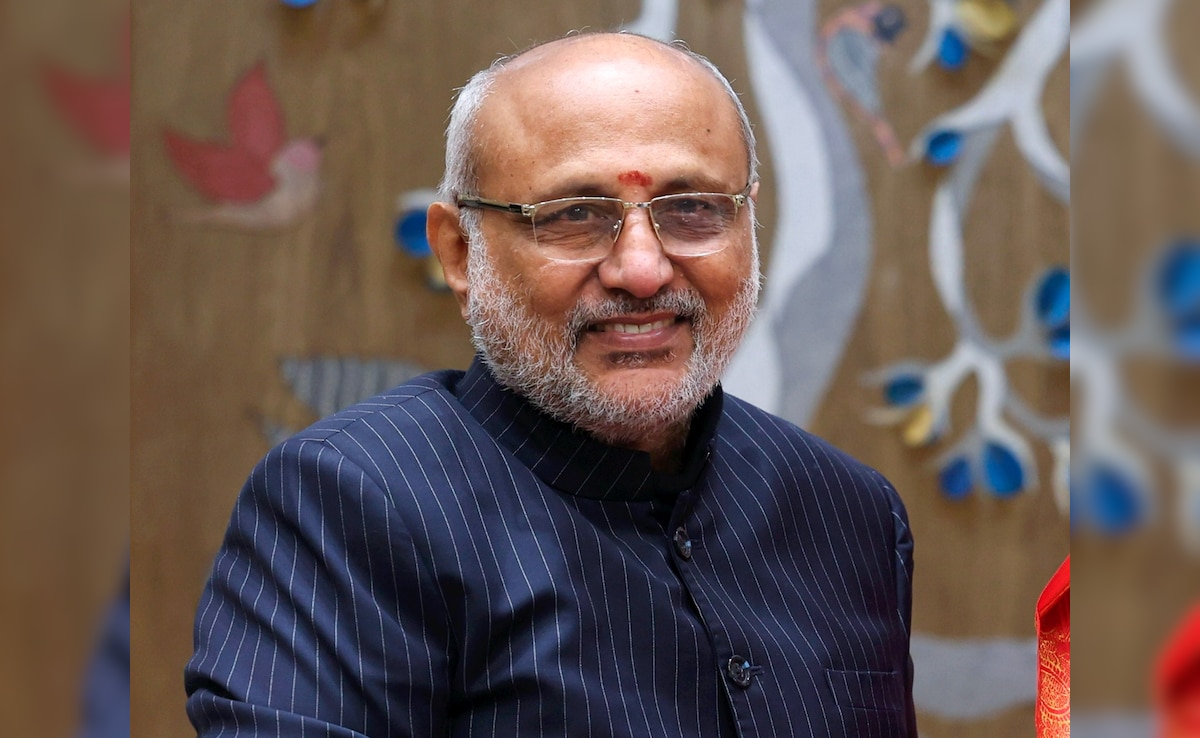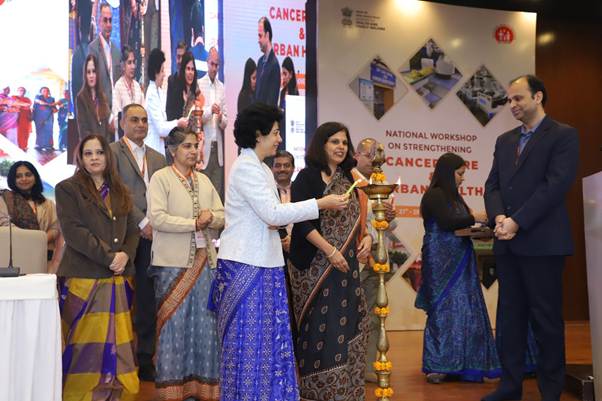REUTERS
Summary
- Harris’s campaign internal polls show her and Trump in a dead heat
- Campaign focusing on men, showing Harris as a strong leader
- Trump donors say they are feeling increasingly optimistic
Oct 17 (Reuters) – Vice President Kamala Harris is shifting her campaign strategy to win over more men and Republicans, and sharpening her attacks on Donald Trump as Democratic anxieties rise over polls showing her rival making strong gains.
The Democratic nominee is in a statistical dead heat in crucial states with Trump, the Republican former president, according to public and internal campaign polls cited by Democratic sources, sparking a round of finger-pointing and second-guessing from some corners.
It is a frustrating moment for a whirlwind campaign that opened with a huge jump in enthusiasm and cash when she replaced President Joe Biden in July, put on a robust Democratic convention and was widely hailed as the winner of her only debate with Trump.
“This was always going to be a tight race…That doesn’t mean we’re not losing sleep over it,” said a senior Democratic campaign aide, reflecting what interviews with donors, aides and advisers show is the mood at the White House and the Wilmington, Delaware-based campaign headquarters.
After weeks of focusing on policy and trying to define herself on the national stage, Harris is going back to her prosecutorial posture of July, an adviser said, hoping to demonstrate strength to voters who might be attracted to Trump’s strongman image.
At her Monday night rally in Erie, Pennsylvania, she took the rare step of showing clips of Trump’s remarks about an “enemy within” America to underscore her argument that he poses a danger to the country.
This week, she sat down with Charlamagne tha God to reach Black men and followed up with a confrontational interview with Fox News to address conservatives. Popular podcaster Joe Rogan and his young, male followers could be next.
Nationally, Harris’ edge has narrowed from a late September lead of seven points over Trump to just three, Reuters/Ipsos polling shows. More concerning for Democrats: she and Trump are statistically tied in the seven crucial battleground states that will decide the race.
The narrowing polls come as high food and rent prices continue to worry Americans and Trump capitalizes on fears related to migrants crossing the southern border with increasingly extreme rhetoric.
Stock markets just hit record highs and some prominent analysts say Harris’ policies would create less debt and spur more economic growth than Trump’s would, but polls suggest voters trust Trump more on one of the top election issues – the economy.
“Kamala Harris is the underdog, like she’s been saying all along,” said Democratic strategist Anthony Coley. “Many folks thought that language was just political posturing … But it was true when she first said it in July and true now three weeks out.”
Three Trump donors told Reuters in recent days that they were feeling increasingly confident about Trump’s chances, chalking the shift up to Americans’ focus on immigration and Trump’s flurry of recent rallies and events.
“I was on the phone with the campaign. They’re guardedly optimistic,” said one donor.
“We just need to win one of the blue wall states, it’s very doable,” he said, referring to Michigan, Wisconsin and Pennsylvania, which would give Trump the White House if he also wins Arizona, Nevada, Georgia and North Carolina.
Asked about the close race on Wednesday, Harris said: “This is an election for president of the United States. It’s not supposed to be easy.”
MARGIN OF ERROR RACE
Nationally, Harris has comfortably won back the suburbs and middle-class voters that had slipped to Trump in the final months of Biden’s campaign, Ipsos/Reuters polling shows.
But internal Harris campaign polls show her within the margin of error in each of the seven battleground states that will help determine the winner, two sources with direct knowledge of the matter said. In the latest batch, she is tied in Pennsylvania, up slightly in Wisconsin and down in Michigan, one source said.
Support from men of all races – where Harris’ numbers lag Biden’s – is a major weakness. The campaign’s strategy of aiming toward the center and its failure to fully engage with local Democrats is another, some Democrats say.
Voter outreach in Michigan has been subpar, said Byron Nolen, mayor of Inkster, a Detroit suburb, and president of the local Democratic club. He said he had to ask the campaign for yard signs and other basic supplies for local voters.
“In my brain, they could have done Michigan better,” he said. “We’re still trying to get people excited.”
Harris’ focus on Republicans, even as she ignores some Democrats’ demands to differentiate herself from Biden’s policy of staunch support to Israel, is a concern for others.
Aaron Regunberg, a progressive Democratic politician and former Rhode Island representative, questioned the campaign shift from saying “Republicans are weird,” a summertime message about Trump and his running mate JD Vance, to “Republicans are great, I want them in my cabinet.”
He argues that instead of touting endorsements from Republicans like Alberto Gonzales, a former attorney general under President George W. Bush, Harris should have publicly broken from Biden’s Gaza policy to win more support.
With plenty of cash in their coffers, Democrats plan to continue their ground game operation in all seven battleground states and to outspend Trump on digital and television ads. There are no plans right now for Harris to narrow her public appearances to the most critical states.
“Our strategy is to compete everywhere, expand the map, and maximize the number of pathways to victory,” campaign chair Jen O’Malley Dillon wrote in a recent email staff and volunteers.
This week Harris makes stops in Pennsylvania, Michigan, and Wisconsin, while her running mate, Minnesota Governor Tim Walz, holds events in Wisconsin, western Pennsylvania, North Carolina and Nebraska’s second congressional district, where a win could provide a potentially crucial single electoral vote for Harris.
“It’s the final stretch in a close election similar to 2016 and 2020,” said Democratic strategist Donna Brazile. “I remain cautiously optimistic.”
Reporting by Jeff Mason and Nandita Bose; additional reporting by Andrea Shalal and Alexandra Ulmer. Editing by Heather Timmons and Deepa Babington





